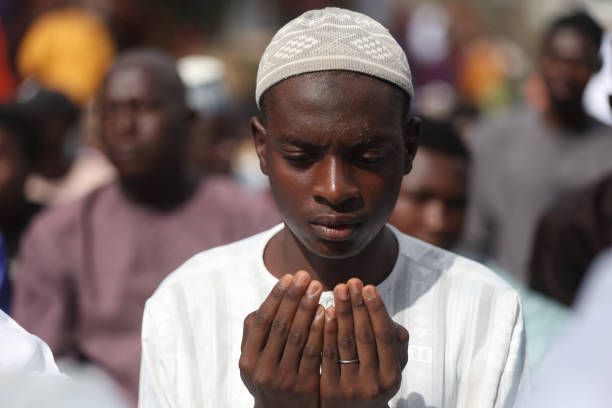Every year, millions of Muslims around the world pause their daily routines to remember one man whose life and message transformed history: Prophet Muhammad (peace be upon him).
His birthday, known as Mawlid an-Nabi, is one of the most observed dates in the Islamic calendar, marked this year with a public holiday in Nigeria.
But what exactly is Mawlid an-Nabi? How did it begin, and why do some Muslims celebrate it while others do not? Let’s break it down.
What does Mawlid an-Nabi mean?
Mawlid an-Nabi
The word Mawlid is Arabic for “birth” or “birthday,” and al-Nabi means “the Prophet.” Together, Mawlid an-Nabi simply means the birth of the Prophet. It is usually observed on the 12th day of Rabi’ al-Awwal, the third month of the Islamic lunar calendar, although the date can vary slightly based on moon sighting.
This day is meant to honour the birth of Prophet Muhammad, who Muslims believe was the seal of the messengers God sent to guide humanity.
READ MORE: 6 great advice from Prophet Muhammad
How did the Mawlid celebration begin?
The Mawlid celebration
Interestingly, the Prophet Muhammad himself never celebrated his birthday, nor did his immediate companions. The practice of holding public celebrations started centuries later, around the 12th century, during the Fatimid dynasty in Egypt.
Over time, it spread across parts of the Muslim world, each region adding its own cultural touch, processions, recitation of poetry, Qur’an readings, and charity.
Today, countries such as Nigeria, Indonesia, Egypt, and Morocco observe the day with public holidays, community gatherings, and prayers. Others, such as Saudi Arabia, do not hold official celebrations but still observe the day in religious sermons.
Why do Muslims celebrate Mawlid an-Nabi?
For many Muslims, this day is not about birthdays in the modern sense; it is a moment of reflection, gratitude, and love for the Prophet. They believe remembering his birth and life is a way to revive his teachings and bring people closer to the values he stood for: compassion, justice, honesty, and humility.
Celebrations often include:
-
Reciting the Qur’an and praises about the Prophet’s life.
-
Charitable acts of feeding the poor, donating to those in need.
-
Community gatherings where stories of his kindness, leadership, and patience are shared.
-
Prayers for peace and unity, especially in countries like Nigeria, where religion often plays a huge role in daily life.
READ MORE: 5 interesting things you may not know about God’s messenger
Why do some Muslims not celebrate it?
Why do some Muslims not celebrate it?
Not every Muslim community marks Mawlid an-Nabi. Some Islamic scholars and groups, particularly in Saudi Arabia and among Salafi circles, argue that since the Prophet and his companions did not celebrate it, it should not be observed as a religious duty. They believe adding new practices to the faith can lead to bid’ah (innovation in religion).
On the other hand, many others see it as a cultural and spiritual expression of love, as long as it does not involve acts forbidden in Islam.
YOU MIGHT LIKE: Why Nigerians love public holidays
How is it celebrated in Nigeria?
Nigeria has one of the largest Muslim populations in Africa, and Mawlid an-Nabi is widely recognised as a public holiday. In the north, large processions, lectures, and recitations are common. Cities like Kano, Kaduna, and Sokoto are often filled with worshippers at their mosques.
In the south, the celebrations are quieter but still meaningful. Families gather, communities hold prayer sessions, and Islamic leaders use the opportunity to preach peace and unity.
Is it just a holiday, or does it hold more significance?
For many Nigerians, the day is both a moment of rest and a moment of reflection. Beyond the public holiday, it’s a chance to ask: how much of the Prophet’s message do we truly live by? His emphasis on fairness, helping neighbours, treating women with respect, and showing mercy to children are values Nigeria still needs today.
As the country observes this holiday, perhaps the best way to honour it, even as a non-Muslim, is to practice one of the Prophet’s most famous sayings: “The best of you are those who are most beneficial to others.”
RECENT READS: Ismail Azizi: The man who died 6 times and came back to life
>
